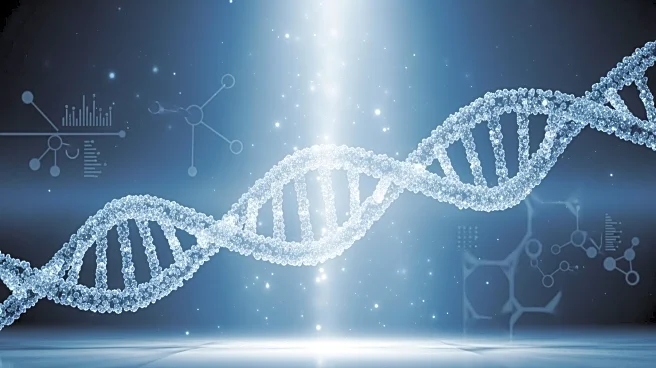What's Happening?
UniQure has reported positive results from a pivotal trial of its gene therapy, AMT-130, for Huntington's disease. The therapy demonstrated a 75% slowing of disease progression in 29 patients, marking
a significant milestone in the treatment of neurodegenerative diseases. Despite the excitement, experts have urged caution due to the small number of evaluable patients and the risks associated with the intracranial surgery required for the therapy. UniQure plans to submit a biologics license to the FDA in early 2026, aiming to launch the first genetic treatment for Huntington's disease later that year.
Why It's Important?
The results from UniQure's trial represent a potential breakthrough in the treatment of Huntington's disease, a condition that combines symptoms of dementia, Parkinson's disease, and amyotrophic lateral sclerosis. The success of AMT-130 could pave the way for advancements in the treatment of other neurodegenerative diseases, offering hope to patients and families affected by these conditions. The development of effective therapies for Huntington's disease could significantly improve the quality of life for patients and reduce the burden on healthcare systems.
What's Next?
UniQure is preparing to submit a biologics license application to the FDA, with plans to launch the therapy next year. Other companies, including Wave Life Sciences and Prilenia Therapeutics, are also advancing their own Huntington's disease therapies, contributing to a competitive landscape in the field. Wave Life Sciences is expected to announce the submission of an investigational new drug application for its candidate, WVE-003, this quarter.
Beyond the Headlines
The development of gene therapies for Huntington's disease highlights the potential of genetic treatments in addressing complex neurodegenerative conditions. It also underscores the importance of continued research and collaboration in the field, as companies work to overcome challenges and bring effective treatments to market. The success of these therapies could lead to broader applications in other genetic and neurodegenerative diseases, transforming the landscape of medical treatment.










